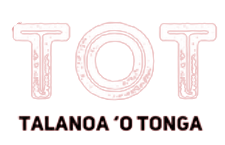In the intricate tapestry of Tonga’s political and social landscape, the task of fostering genuine public critique of governmental policies presents itself as a formidable challenge. This difficulty is compounded when the spotlight turns towards the Tongan media, where the expectation for such critical discourse becomes even more elusive.
At the heart of this issue lies a pervasive cultural authority, casting a shadow over the prospect of free and open critical thinking. This cultural norm, deeply embedded within Tongan society, acts as a barrier to constructive political dialogue, effectively muffling voices that dare to question or propose alternative visions for governance.
The political governance structure in Tonga, as it stands, appears to serve no constructive purpose for either proponents or critics of the status quo. It perpetuates a cycle of stagnation, wherein the mechanisms of governance fail to facilitate meaningful progress or political clarity.
The constitutional changes of 2010, often heralded as a step towards political reform and clarity, fall short of delivering on their promises. The notion that granting a majority representation in parliament, coupled with allowing the parliament the authority to elect a Prime Minister, would catalyse significant change was, in hindsight, overly optimistic.
These reforms, rather than ushering in an era of political enlightenment, proved to be little more than a façade, creating an illusion of progress while leaving the underlying issues untouched. This façade was further compromised by the mutation of a reform movement, which, rather than embodying the aspirations for genuine change, was derailed by opportunists driven by ambition and incompetence.
The outcome was a confused mixture of policies and principles, failing to uphold the integrity of the Monarch, improve political governance, or foster a sense of equality and dignity among the people. Instead of creating an environment conducive to the robust exchange of policy ideas for the betterment of the population, the reforms of 2010 culminated in a political landscape marked by chaos and disillusionment.
At the core of Tonga’s political strife is the social psychology of tribalism, a force potent enough to disrupt the fabric of societal cohesion. Tribal allegiances in Tonga have fostered an environment where criticism is not only discouraged but demonized, creating a culture of blind loyalty to tribal leaders.
This dynamic is not unique to any one faction within Tongan society; it permeates various groups, from the government led by Hu’akavameiliku to traditionalists and the PATOA. These tribes, acting as echo chambers, exacerbate division and inhibit the possibility of introspective critique or the acceptance of external criticism.
The persistent tribalism and the cult-like allegiance it engenders suggest a deeper, more systemic issue that transcends the immediate political grievances or the personalities currently at play. It signifies a societal dynamic resistant to change, one that cyclically regenerates itself with new faces but old ideologies.
Amidst this complex scenario, there emerges a critical need for a figure of transformative potential, a true Statesman capable of transcending tribal divides and confronting the entrenched dynamics that have long hindered Tonga’s political evolution. The vacancy for such a leader is glaring, offering an opportunity for someone with the vision, courage, and integrity to step forward and navigate Tonga through its quagmire of stagnation towards a future marked by genuine political reform and societal unity. The journey ahead is fraught with challenges, but the promise of achieving a truly representative and accountable governance structure remains a goal worth striving for. The legacy of the 2010 reforms, while falling short of its intended mark, serves as a poignant reminder of the necessity for continued effort and vigilance in the pursuit of political and social transformation in Tonga.




